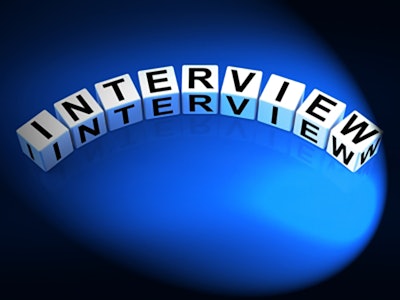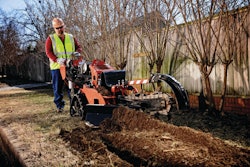
While most contractors are in “crisis management mode,” aka CMM, to find and hire workers, the need to build effective questions into your firm’s interviewing process is always important, as many Human Relations professionals will attest.
In my own teaching and consulting with contractors on hiring strategies, I believe strongly in having a plan. The plan I use is called C-BIS™, the Competency-Based Interviewing System, and it’s designed to retrieve what a prospective candidate has done in his past employment and what competencies he possesses.
A “competency,” as I use it here, is the combination of skills and bits of knowledge a candidate has in his or her background. In brief, it’s what a candidate knows, has learned, maintains knowing and is physically, mentally and emotionally capable of displaying in a consistent manner.
Whether you interview candidates once, twice or even three times or more (I recommend three interviews), the questions you choose to use will be the tools required to retrieve information that will influence a hiring decision. So, let’s focus on the sort of questions that may be helpful.
Below represents samples of questions I coach contractors to use when interviewing. This is especially critical for field leaders, superintendents, project managers and foremen who may actually do their own interviewing and hiring for their projects.
A brief word to the wise, if this is your situation, please consult with your internal HR manager or, if this role isn’t available, contact a local labor “expert” who may provide you with other legal considerations for your state and situation.
First interview
Purpose: “Getting to Know You”
Why are you leaving your present job? Or: What have you been doing while unemployed?
- What job skills do you possess that leads you to believe you can complete the work we have a need for? Why?
- What were your duties with your last job? What did you like the most? The least? Why?
- What would you say you contributed the most to your last job? Why?
- What things on your last job do you think will help you in this job? Why?
- What were your major responsibilities in your last job? How much authority did you have? Why?
- Will you have any challenges that will prevent you from being at work on time and consistently per our required work days and hours? Why?
- How did you come to apply for this position? Why?
Second interview
Purpose: “Best Matched”: Do They Have Needed Competencies?
- What kind of person do you like to work for? Dislike working for?
- How do you start a project when you get no direction from your manager?
- What people skills would you bring to this job that others would not?
- How do you gain the cooperation of others? Provide me with two examples from your past job.
- What are some of the things you would like to avoid in a job? Why?
- What are your current expectations for this job and this company…if hired?
- How do you feel about detail work, accuracy and routine? Give me two examples that clearly point this out from your past job.
- Why are you interested in working here?
- What do you think are your qualifications for the job?
- Describe your typical workday — what time you get up and what you do throughout the day and evening. If unemployed, ask: Describe a typical day of last week.
- How well do you organize your time?
- How do you get organized?
- Define “good communication.”
- How would you determine that your team or staff was under too much pressure?
- What do you get out of working on a team that satisfies you the most?
- Have you ever supported a cause in the face of resistance? If yes, ask: What were the causes?
Third interview
Purpose: Just to Be Sure!
- Please share with me two reasons that I should hire you and two reasons that I should not hire you?
- Customers are #1 around here. Give me three examples of how you work to meet the needs of a customer.
- Rank the following values in the order they are most important to you: honesty, hard work, teamwork, problem solving and communication
- Give me two examples of you learning something new and the process you went through to master the new knowledge or skill.
- If you were to be hired, how would you spend the first 30 to 90 days getting to know this company, its people and technical aspects of your job?
You no doubt noticed all the “why” questions during the first interview. Perhaps no human asks “why?” more than a 4- to 7-year-old child. And there is good education here. “Why” simply forces greater clarity, resulting in greater belief. So, use “why” question throughout your interviews, but especially on the first one.
It’s important to tailor your questions to your company and needs. Don’t be cavalier by asking questions about the workers’ personal life and situation; most of this is out of bounds legally. However, what I’ve focused on here is to provide some questions that will get you started to develop your own set of questions.
Set your bar high and you will have a much easier time screening out those candidates not a good match for your company and welcoming in those who are. Don’t make things more difficult by “winging it” when interviewing.




















